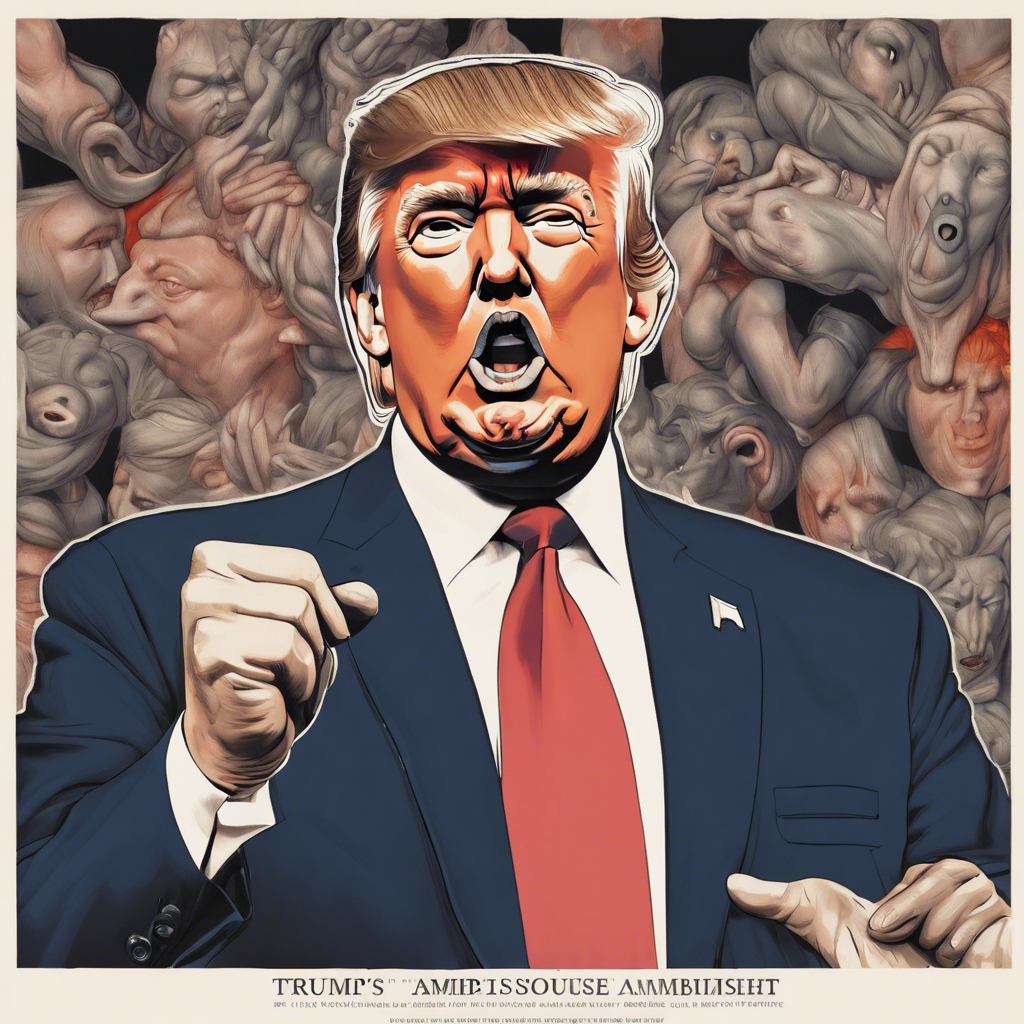Trump’s Ambiguous Response Raises Concerns About Potential Abuse of Power

Former President Trump’s refusal to categorically deny abuse of presidential power raises questions about his intentions
During a recent town hall on “Fox News,” former President Donald J. Trump was asked by moderator Sean Hannity about his potential abuse of power and retaliation against political opponents if re-elected. Despite being given multiple opportunities to unequivocally deny any intention to abuse his presidential authority, Trump’s responses were ambiguous, leaving room for concern.
Ambiguity Surrounding Trump’s Potential Abuse of Power
The first instance occurred when Hannity confronted Trump about recent reports detailing his use of violent rhetoric on the campaign trail and his promise to employ the Justice Department against political adversaries. The question posed by Hannity was direct: “Do you have any plans whatsoever, if re-elected president, to abuse power, break the law, or use the government to go after people?”
Trump’s Noncommittal Response Raises Eyebrows
In response to Hannity’s question, Trump failed to provide a definitive answer, leaving room for interpretation. This ambiguity raises concerns among both his supporters and critics, as it leaves open the possibility of potential misuse of presidential power. By refusing to categorically deny any intention to abuse his authority, Trump leaves the door open for speculation and doubt regarding his commitment to upholding the principles of democracy.
Historical Precedents and the Importance of Transparency
To understand the significance of Trump’s ambiguous response, it is essential to examine historical precedents. Throughout history, leaders who have abused their power often displayed similar evasiveness when questioned about their intentions. Transparency and a clear commitment to democratic values are crucial for maintaining public trust in the highest office of the land.
The Role of Checks and Balances
The ambiguity surrounding Trump’s potential abuse of power highlights the importance of robust checks and balances within the political system. The United States Constitution provides mechanisms to prevent the concentration of power and protect against abuses. It is the duty of Congress, the judiciary, and the American people to remain vigilant in upholding these checks and balances to ensure the integrity of the democratic process.
Implications for the Future of American Democracy
Trump’s refusal to definitively deny any intention to abuse presidential power raises concerns about the future of American democracy. The presidency holds immense influence, and any misuse of that power can have far-reaching consequences. It is crucial for the American people to carefully consider the potential implications of electing a leader who leaves room for doubt regarding their commitment to democratic principles.
Conclusion:
Former President Donald J. Trump’s ambiguous response to questions about potential abuse of power raises significant concerns about his intentions. By failing to categorically deny any intention to misuse presidential authority, Trump leaves room for speculation and doubt. This ambiguity underscores the importance of transparency, checks and balances, and the preservation of democratic values. As the next election approaches, it is crucial for voters to carefully consider the potential implications of electing a leader who may not fully commit to upholding the principles of American democracy.

